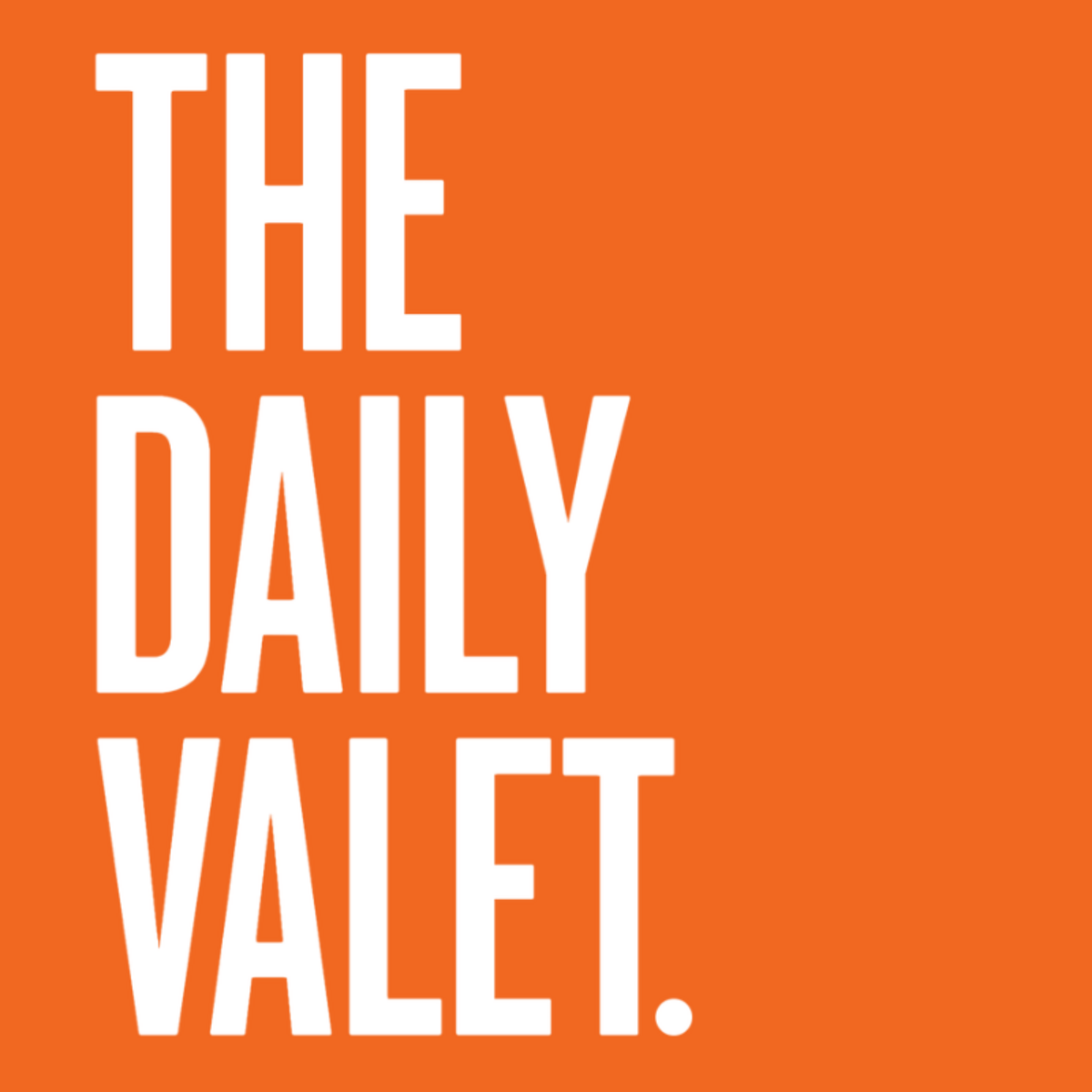Thursday, July 31st Edition |

|
By Cory Ohlendorf, Valet. EditorBe careful not to optimize yourself into oblivion. |
Today’s Big Story
Has Optimization Culture Gone Too Far?
Our performance-obsessed age is eroding our creativity and sanity

In case you haven’t heard, we are living in an era of optimization. It’s a time where progress and productivity not only matter above simple things like peace of mind and happiness—they’ve supplanted these things as our key metrics of wellbeing.
Tune into any self-improvement podcast (which is basically every podcast, it seems) and it quickly becomes clear that the only way you can have any worth in this world is if you’re continually growing your business or founding another, perfecting your sleep cycle, shaving minutes off your 5K time, sharpening up your investment portfolio, keeping tabs on your variable heart rate, and/or using AI to upgrade your daily scheduling and your writing ability.
Spiked calls it “the cult of self-optimization”. People have become caught in this incessant urge for continual self-improvement and are now trapped in a deeply self-oriented way of living. “Self-acceptance and self-esteem are key—the goal is to make you feel good about yourself. But what about the other people in your life?”
Remember the “morning routine” videos that were circulating around that inspired homages (and satires) with people perpetually chugging, dipping their faces into, and even brushing their teeth with Saratoga water? Some are wondering if all this performative optimizing is turning well-meaning people into a sociopathic Patrick Batemans, where a crisis of meaning has been replaced with pseudo-religious rituals and purification, only in the form of “wellness”. A little overdramatic, sure, but they’ve got a point.
InsideHook spoke with psychotherapist Eloise Skinner, who reminded us that our obsession with optimization is nothing new. “Striving towards self-improvement is definitely a well-established tendency in humans,” she said. But why we’re so obsessed with being more and being better right now, Skinner thinks, is partly due to the effects of capitalism. In this system, output, productivity levels and performance are highly regarded—and with wearable trackers and helpful apps everywhere, it’s easier than ever to keep score.
Betterment Burnout: |
A study indicated that a relentless pursuit of change and self-development might actually lower your life satisfaction. |
Trump Announces Plan to Launch Private Health Tracking System
The new initiative is being developed with Big Tech’s help
The White House announced a new initiative on Wednesday designed to allow Americans to share their medical records across a host of apps and programs managed by private tech companies—a move that proponents say will facilitate easier access to those records across the country’s fragmented health care system, but that digital privacy experts fear will risk making patients’ data less secure.
As TIME points out, making health records more easily accessible has been a goal of the federal government for decades, with the hope of allowing patients to seamlessly switch between providers. But such efforts have long been dogged by concerns over privacy and the challenges of companies offering competing proprietary records systems. A statement from the U.S. Centers for Medicare & Medicaid Services said the initial goals of the initiative include apps that focus on diabetes and obesity management, using conversational AI assistants to help patients, and replacing paper intake forms with digital check-in options.
According to the Associated Press, more than 60 companies, including major tech companies like Google, Amazon and Apple as well as health care giants like UnitedHealth Group and CVS Health, have agreed to share patient data in the system. The initiative will focus on diabetes and weight management, conversational artificial intelligence that helps patients, and digital tools such as QR codes and apps that register patients for check-ins or track medications. The Washington Post says it would work something like this: Once a patient is in the system, their information could be shared across apps or health systems that have joined the initiative. So, for example, the Apple Health app on your iPhone that tracks your daily step count or your sleep could access lab results from your doctor’s office. Putting that information together, the Trump administration says, will offer a fuller picture of your health.
Meanwhile: |
Treasury Secretary Scott Bessent says “Trump accounts” are a “back door for privatizing Social Security.” |
The Changing Map of Palestinian Recognition
Three new countries have said they are ready to bestow recognition
Most countries in the United Nations (147 out of 193) already recognize a Palestinian state, which currently has observer status at the U.N. Then, in the course of just the past week, three more countries—all major U.S. allies—said they would join their ranks.
First, France said it would recognize a Palestinian state in September, and in the days that followed, Britain and Canada announced that they, too, were prepared to follow suit. Britain said it would move forward if Israel did not agree to a cease-fire with Hamas in Gaza by September, while Canada tied a final decision to political changes by the Palestinian Authority. The move further isolates the White House and Israel’s government internationally. President Trump suggested early Thursday that he won’t make a trade deal with Canada after Prime Minister Mark Carney’s announcement.
But it’s clear the announcements reflect the deep frustrations with Israel’s conduct in the war in Gaza, analysts say, which has killed tens of thousands of Palestinians and left a population of about two million in a state of extreme privation and hunger. And, it should be noted, several other European countries, including Spain, Ireland and Norway, recognized a Palestinian state last year.
Meanwhile: |
The U.S. secretary of state, Marco Rubio, said in a post on X that “The United States strongly rejects” the plan, calling it reckless and “only serves Hamas propaganda and sets back peace.” |
How’d Seedless Watermelons Happen?
They have perks, but there’s something alluring about old-timey, seeded watermelons too
It’s one of the quintessential flavors of summer: a ripe, juicy watermelon. And spitting the seeds out without a care is a classic activity. But it did add some work to eating the fruit. Which could explain why now it’s hard to even find a “traditional” watermelon with seeds. Seedless varieties have dominated the produce section since the early 2000s, and starting around 2014, a whopping 92% of all watermelons shipped from farms have been seedless. But why, exactly, have they taken over as the dominant watermelon variety?
What even are they? Chowhound points out that while they’re genetically modified, they’re not entirely natural either. They're hybrids created through cross-breeding—a technique that combines the genes of two or more parent plants to produce new varieties with desirable traits. Eater says they were first invented in Japan in the late 1930s, but they were difficult to grow and lacked resistance to disease. In the early ’90s, advances in pollination and cultivation meant that the seedless watermelon slowly started to gain popularity across America, and by the 2000s, it was the go-to choice by consumers. And it makes sense: they tend to be smaller so they’re easier to store and eat in one setting and easier to consume without the chore of seed spitting.
And the Takeout appreciates how the seedless varieties tend to stay fresh longer. While a seeded watermelon might start turning grainy or watery after just a day or two in the fridge, a seedless one often holds its texture and sweetness for three or four days when stored properly. “That makes a big difference if you're meal prepping or just don't want to rush through a massive melon in one go.”
Color Theory: |
Southern Living says you've got to try a yellow watermelon before the season ends. |
|
The Long Read
More than a thousand dentists have set up shop in Los Algodones, for Americans who can’t afford the U.S.’s dental care
|
|||||||||





